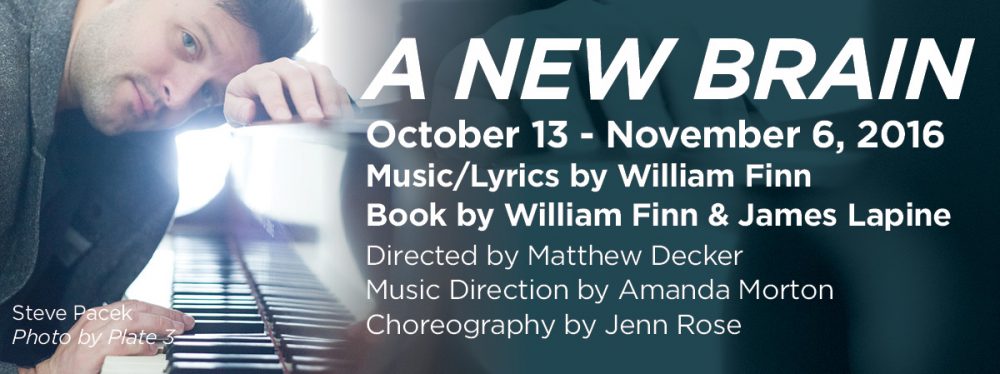It has been ten years since I Am My Own Wife won the Pulitzer Prize for drama, but in Theatre Horizon’s home of Norristown, the play’s message of tolerance for all humanity is timely and powerful.
In I Am My Own Wife a playwright investigates the unusual life story of an East German transvestite named Charlotte who survived a Nazi firing squad in World War II, then operated a furniture museum and secret gay cabaret for 30 years, avoiding imprisonment by the Russian secret police.
The playwright’s attempt to present Charlotte’s biography turns into a quest for the truth, when evidence that Charlotte may have colluded with the Russian secret police surfaces and collides with the playwright’s idealized view of Charlotte as a hero of gay culture. As questions mount, the characters confront the moral costs of survival.
Charlotte’s unique perspective is that of a person who walked the line between two genders, and courageously stayed true to her own self, risking imprisonment and death.
In the play, Charlotte lives in a liminal space between the two genders, considering herself both man and woman simultaneously. The character says, “When I was almost forty years old, my mother said, ‘It’s all very well to play dress-up. But now you’ve grown into a man. When will you marry?’ And I said to her, ‘Never, my dear Mutti. Ich bin meine eigene Frau. I am my own wife.’”
Resident Director Matthew Decker and I programmed I Am My Own Wife into the 2013-14 season because the play raises questions that are front in center in the public’s consciousness right now. At a time when the gay rights movement is affecting sweeping legal change across the nation, political and cultural leaders are asking: What space do we afford gays, lesbians, bisexuals, and trans individuals in our society? What rights do we extend to these groups, and do those rights differ from those of the heterosexual population? If so, how? The ramifications of these questions, asked half a century ago on another continent, shaped the life of our main character, Charlotte’s, and ultimately led to Doug Wright’s quest to compose this piece of theater.
In our own community, our production of I Am My Own Wife represents the ripple effects of the sweeping cultural changes our culture is undergoing. In my opinion, we are rightly moving as a society toward the full promise of our constitution: that all people will share equally and fully in the rights of being an American.
This past summer, Norristown became the focus of gay rights activism in the Philadelphia region when, in the wake of the Supreme Court’s DOMA ruling, a county official began issuing marriage licenses to same-sex couples. “Gay couples rejoice after receiving marriage licenses in PA,” wrote the Philadelphia Inquirer, and followed that with an editorial “Equality won’t wait.”
What would Charlotte–who faced down a firing squad in World War II Berlin, and a hate-fueled assault from neo-nazi skinheads in the 1990s–have thought of the American LGBT community’s incredible progress made in the last decade?
Certainly in her own lifetime, Charlotte used her unique position to advance the cause of human rights, and ultimately gay rights, in two ways. First, she lived as an out transvestite. Born Lothar Berfelde, Charlotte became aware that she was a homosexual early in adolescence, and started dressing in female clothes. She lived openly as a transvestite, defying the law, and risking her life. During both the Nazi and Stasi eras in East Germany, being gay was punishable by death. Gays could not marry or work.
In one scene in the play, Charlotte receives a medal of honor for her efforts to conserve artifacts of German history in her famous furniture museum. Charlotte says, in her English accented with German, “The day I received the medal—I thought it’s good because other people see that a transvestite can work. A transvestite becomes such a medal!”
At one point, Charlotte says, “Museum. Furniture. Men. This is the order in which I lived my life.” Charlotte’s point was that while she was a transvestite and homosexual, her primary view of herself was that she was a museum curator. The fact that she became an international hero to gays around the world was of secondary importance.
When you hear the story of Charlotte von Mahlsdorf, you must ask, how can it be that one person escapes evil, while another succumbs? To hear Charlotte tell it, her survival was a series of lucky breaks. In reality, she made choices that secured her salvation. If faced with death, would you do the same?
